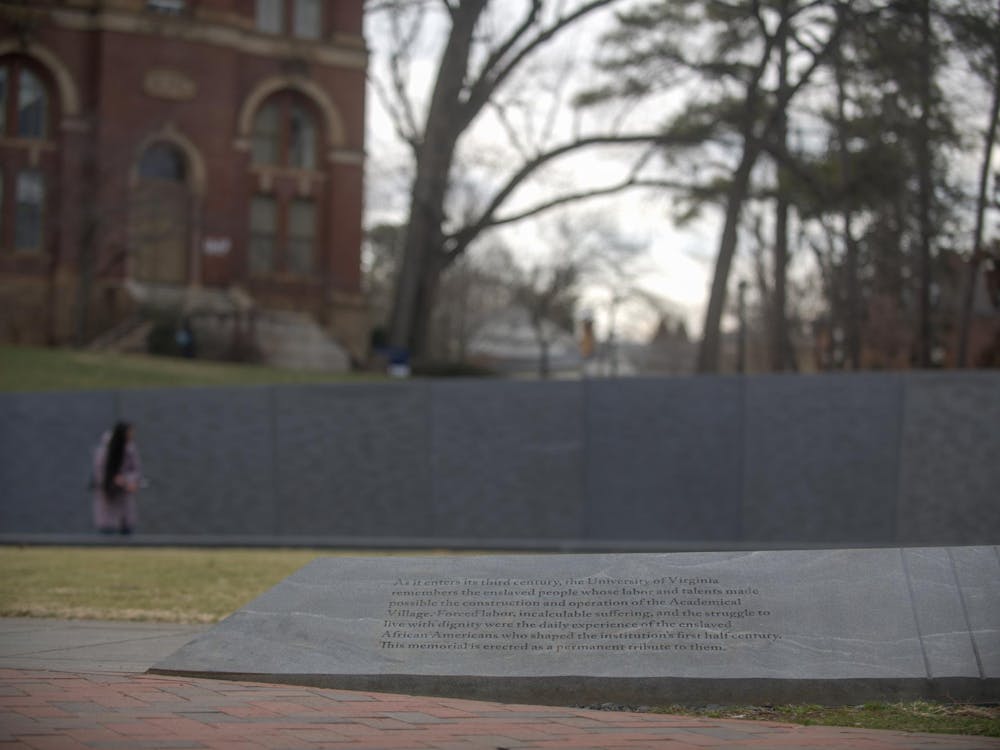Timothy Dennehy sits down in a Runk Dining Hall booth. As he eats, he keeps up a steady stream of conversation. This alertness translates well into his job as Music Director for the Catholic Student Association. There is a snapping energy in his blue eyes, made even more apparent by the fact that he just came back from a run. He pauses to talk about his frank "coming out" to the Catholic student group last spring.
"I was nervous," Dennehy admits, smiling. "But I knew a lot of the people and they loved me anyway."
Dennehy realized he was gay in ninth grade and came out to his family in his second year at the University.
"My dad suspected ... he ended up being really great," he said.
Although his family never had a problem with his homosexuality, his religion did. Passages from the Bible and a long history of conservative teachings have supported many Christians' view that homosexuality is sinful.
Enter the Gay Lesbian Christian Student Alliance (GLCSA), a support group dedicated to gay Christians or those who are dealing with the conflicts of being either gay or Christian.
"I am a person of faith - I am not a person of religion. I attended a Catholic middle school and high school, and I never got the 'gays are damned' teaching," Dennehy said.
Although he is out to his friends, Dennehy is sometimes bothered by the ignorance surrounding who he is. "During every normal day I don't think about the University being homophobic," he said. But he does recall when he felt a homophobic vibe while sitting at a table advertising GLCSA. "Some were fine with it," he said, "but a good number of people snickered or stared [when] passing by."
Confidentiality is of utmost importance in the group. And from this, there is instant camaraderie. Many group members also have faced discrimination for their sexuality or were misunderstood.
"First and foremost," Dennehy said firmly, "it's a place where any gay Christian can go to find people on a common ground ... a community where people feel welcome."
One such member is Benjamin Hines, a second-year College student who is openly gay and Baptist. For Hines, homosexuality and Christianity are not mutually exclusive.
"You know," Hines said intensely. "God doesn't make any mistakes. I am who I am. I'm not going to change no matter how hard I pray. It's hurtful to know my own church is against me."
Like Dennehy, Hines said he realized he was gay in high school. He sighed and took off his glasses.
"I was fighting it the whole time," he said. "And I was able to reconcile myself to who I was after a summer of introspection," he added.
Instead of feeling alienated from his religion, he spoke energetically about the sermons, choirs and activities associated with church with a sparkle in his eyes. But he frowned as the subject of the Baptist church's rather public stand on homosexuality came up - a negative view cemented by the famous Biblical passage Leviticus 18:22: "Man shall not lie with a man as he does with a woman, it is an abomination."
Hines disagreed, saying, "As far as I am concerned, as long as you have accepted Jesus Christ into your life as your savior, you are a Christian."
But for fourth-year Engineering School student John Chappell, president of the Christian Fellowship Council, there is a conflict between being gay and Christian.
"We don't hate gays ... we just disagree with their lifestyle," Chappel said. "To be honest, I don't think you can be a gay Christian. I believe that to be a Christian you have to live your best by the Bible ... [but] I wouldn't shun them from the community."
For its part, the Catholic Church has extended a welcoming hand to gay Catholics.
According to Brother Cosmas Rubencamp, secretary of the Sexual Minorities Commission of the Archdiocese of Richmond, there is no official Catholic teaching on homosexuality. "The Catholic Church teaches that sex is reserved for marriage," Rubencamp said.
He added that in recent years, the Roman Catholic Church has been moving with the times. The very existence of the Sexual Minorities Commission for which he works, offering educational programs and specialized resources to gay people and their families, attests to that fact.
"We are trying to be more welcoming to all homosexuals and heterosexuals dealing with sexuality," Rubencamp said. "We know that homosexuality is not sin. It's a given, not a choice. And we want them to feel like a full, active member of the Church."
The National Association of Catholic Diocesan Lesbian and Gay Ministries' Web site states that American bishops expressed their welcome of lesbian and gay people in 1976 and repeated it in 1991, stating, "Homosexual [persons], like everyone else, should not suffer from prejudice against their basic human rights. They have a right to respect, friendship, and justice. They should have an active role in the Christian community."
Hines spent a while searching for a place to air his confusion and pain about his sexuality and religion and is very grateful for the GLCSA. But he remains aware and concerned about the stigma attached to being gay in today's society.
"A lot of people in this organization [GLCSA] are not 'out' to their friends or family yet," he said.
Both Dennehy and Hines agree that being gay often is difficult.
"No matter what you do, you can never be anything that everyone supports. I have to be secure in who I am," Hines said.
That's why there's the GLCSA.
"I want to encourage people to think outside the box ... to see the words gay and Christian and believe they can go together," Dennehy said.






